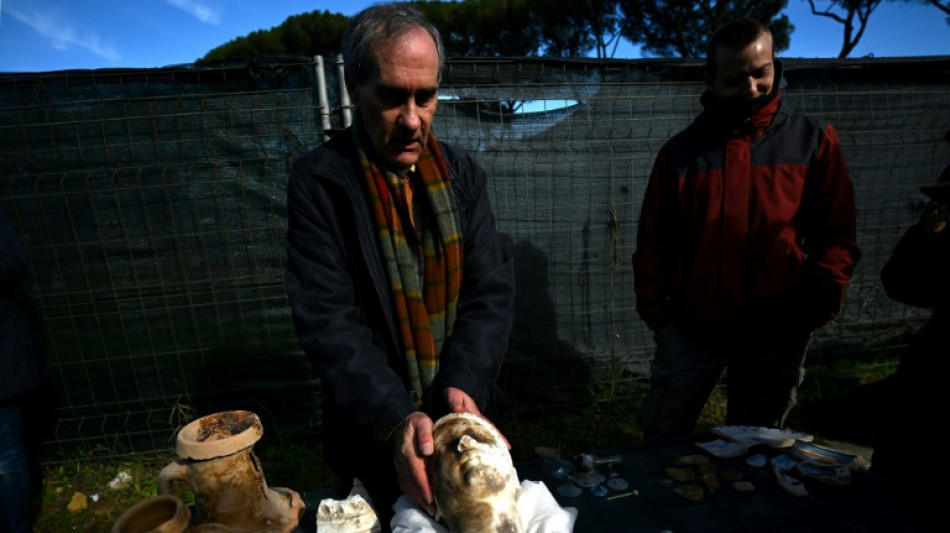
-
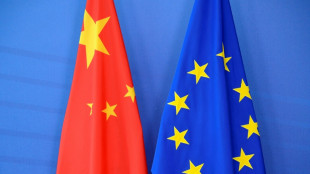 EU slams China dairy duties as 'unjustified'
EU slams China dairy duties as 'unjustified'
-
Italy fines Apple nearly 100 mn euros over app privacy feature
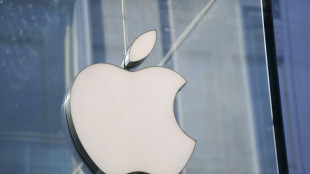
-
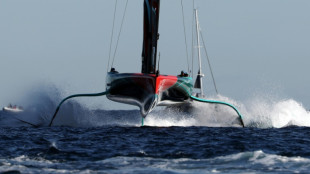 America's Cup switches to two-year cycle
America's Cup switches to two-year cycle
-
Jesus could start for Arsenal in League Cup, says Arteta

-
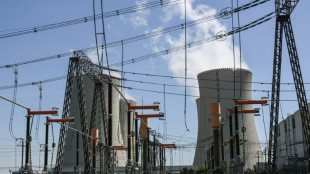 EU to probe Czech aid for two nuclear units
EU to probe Czech aid for two nuclear units
-
Strauss says sacking Stokes and McCullum will not solve England's Ashes woes

-
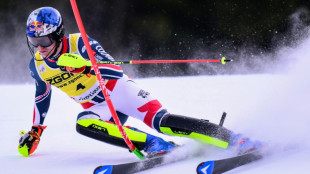 Noel takes narrow lead after Alta Badia slalom first run
Noel takes narrow lead after Alta Badia slalom first run
-
Stocks diverge as rate hopes rise, AI fears ease

-
 Man City players face Christmas weigh-in as Guardiola issues 'fatty' warning
Man City players face Christmas weigh-in as Guardiola issues 'fatty' warning
-
German Christmas markets hit by flood of fake news

-
 Liverpool fear Isak has broken leg: reports
Liverpool fear Isak has broken leg: reports
-
West Indies captain says he 'let the team down' in New Zealand Tests
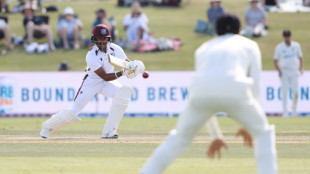
-
 Thailand says Cambodia agrees to border talks after ASEAN meet
Thailand says Cambodia agrees to border talks after ASEAN meet
-
Alleged Bondi shooters conducted 'tactical' training in countryside, Australian police say
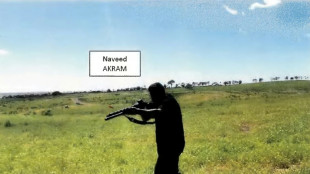
-
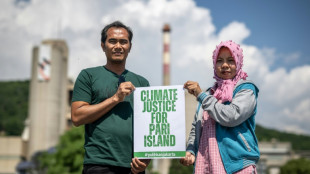 Swiss court to hear landmark climate case against cement giant
Swiss court to hear landmark climate case against cement giant
-
Knicks' Brunson scores 47, Bulls edge Hawks epic

-
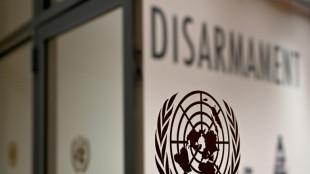 Global nuclear arms control under pressure in 2026
Global nuclear arms control under pressure in 2026
-
Asian markets rally with Wall St as rate hopes rise, AI fears ease

-
 Jailed Malaysian ex-PM Najib loses bid for house arrest
Jailed Malaysian ex-PM Najib loses bid for house arrest
-
Banned film exposes Hong Kong's censorship trend, director says

-
 Duffy, Patel force West Indies collapse as NZ close in on Test series win
Duffy, Patel force West Indies collapse as NZ close in on Test series win
-
Australian state pushes tough gun laws, 'terror symbols' ban after shooting

-
 A night out on the town during Nigeria's 'Detty December'
A night out on the town during Nigeria's 'Detty December'
-
US in 'pursuit' of third oil tanker in Caribbean: official

-
 CO2 soon to be buried under North Sea oil platform
CO2 soon to be buried under North Sea oil platform
-
Steelers edge Lions as Bears, 49ers reach playoffs

-
 India's Bollywood counts costs as star fees squeeze profits
India's Bollywood counts costs as star fees squeeze profits
-
McCullum admits errors in Ashes preparations as England look to salvage pride

-
 Pets, pedis and peppermints: When the diva is a donkey
Pets, pedis and peppermints: When the diva is a donkey
-
'A den of bandits': Rwanda closes thousands of evangelical churches

-
 Southeast Asia bloc meets to press Thailand, Cambodia on truce
Southeast Asia bloc meets to press Thailand, Cambodia on truce
-
As US battles China on AI, some companies choose Chinese

-
 AI resurrections of dead celebrities amuse and rankle
AI resurrections of dead celebrities amuse and rankle
-
Tectonic Metals Drills 4.05 G/T AU Over 30.48 Meters, Including 8.84 G/T AU Over 13.72 Metres at Flat Gold Project, Alaska

-
 Switching Payroll Providers Won't Fix Past IRS Errors - Clear Start Tax Warns Business Owners About Lingering Liability
Switching Payroll Providers Won't Fix Past IRS Errors - Clear Start Tax Warns Business Owners About Lingering Liability
-
Ovation Science Sees Expanded Opportunities for Its Topical Products Following U.S. Cannabis Rescheduling

-
 PPX Mining Appoints Ernest Mast as President and CEO and Announces Stock Option Grants
PPX Mining Appoints Ernest Mast as President and CEO and Announces Stock Option Grants
-
Rio Grande Resources Completes 2025 Field Program and Advances Drill Targeting at the Winston Gold-Silver Project

-
 Eco Innovation Group (ECOX) Receives Strong Speculative Buy Rating from Harbinger Research Following Strategic Costa Rica Expansion
Eco Innovation Group (ECOX) Receives Strong Speculative Buy Rating from Harbinger Research Following Strategic Costa Rica Expansion
-
DealFlow Discovery Conference Announces Panel on Microcap Deal Trends and Regulation for 2026, Featuring Richard Anslow of Ellenoff Grossman & Schole

-
 EonX Announces Update To Loan Facility
EonX Announces Update To Loan Facility
-
Silver X Mining Announces Management Update

-
 Medicus Pharma Ltd. Announces Engagement With Reliant AI to Develop Artificial Intelligence (AI) Driven Clinical Data Analytics Platform
Medicus Pharma Ltd. Announces Engagement With Reliant AI to Develop Artificial Intelligence (AI) Driven Clinical Data Analytics Platform
-
Revolve Receives Generation Permit Approval for 130 MW El 24 Wind Project in Mexico

-
 NuRAN Restores Sites in Ghana and Resumes Network Deployment Activities in the Democratic Republic of the Congo
NuRAN Restores Sites in Ghana and Resumes Network Deployment Activities in the Democratic Republic of the Congo
-
1933 Industries Issues Final Reminder to 2024 Debenture Holders: December 22 Is the Deadline to Convert

-
 Arrive AI to Attend CES 2026 to Engage Industry Leaders on the Future of Autonomous Delivery and AI-Driven Logistics
Arrive AI to Attend CES 2026 to Engage Industry Leaders on the Future of Autonomous Delivery and AI-Driven Logistics
-
Guanajuato Silver Receives TSXV Conditional Approval for Bolanitos Acquisition

-
 Brenmiller Energy CEO Avi Brenmiller Issues Year-End Letter to Shareholders
Brenmiller Energy CEO Avi Brenmiller Issues Year-End Letter to Shareholders
-
1933 Industries Achieves Positive Income in Q1 2026, Marking Third Consecutive Profitable Quarter


Rome archaeologists search for start of Appian Way
All roads lead to Rome, as the saying goes, and the most prestigious is the Appian Way, the strategic highway for the Roman Empire now hoping to become a UNESCO World Heritage Site.
A paved road of more than 500 kilometres (310 miles) begun in 312 B.C. by Roman statesman Appius Claudius Caecus, the "Via Appia" is an archaeological treasure trove, where an ongoing excavation hopes to uncover the actual starting point of the road in Rome.
The artery leading south to the key port of Brindisi at Italy's heel provided a gateway to the eastern Mediterranean, especially Greece, and was of strategic importance for the armies and merchants of a quickly expanding Rome.
This week, archaeologists showed off progress in their attempt to dig deep enough to unearth the beginning of the road, hidden far beneath Rome's Baths of Caracalla, built some five centuries after the Appian Way.
"What we see today is the result of an excavation that began in July with the central goal of finding clues to the location of the first section of the Appian Way," said archaeologist Riccardo Santangeli Valenzani.
The first, earliest section of the road is the one that provides "the most problems regarding the precise and exact location", the professor at Roma Tre University cautioned.
Construction of the Appian Way required Herculean engineering, from the levelling of the land, building of ditches and canals and surfacing of the road with gravel and heavy stone, to the building of post offices and inns to support the thousands of soldiers and merchants headed southward.
- Digging deeper -
Wandering today along the Appian Way --- its massive blocks of paving stone still visible in sections -- is to take a trip through the past.
Imposing monuments such as the first century B.C. tomb of a consul's daughter, Cecilia Metella, sit alongside ancient catacombs and churches, crumbling tombstones of Roman families and leafy villas.
The Appian Way sheds light not only on the Roman Republic and later Roman Empire, but also on life and death in the Middle Ages with its pilgrimage shrines and crypts.
The road also provides a glimpse of modern architectural wonders, such as the sumptuous villas owned by Italy's rich and famous, including film legend Gina Lollobrigida or former premier Silvio Berlusconi.
Italy, which earlier this month presented its bid for the Appian Way to UNESCO, already has 58 sites recognised as World Heritage Sites, the most of any country.
They include entire historical city centres, such as Rome, Florence and Venice, and archaeological areas such as the ruins of Pompeii and Herculaneum.
Work to locate the starting point of the Appian Way, believed to be some eight metres under the ground, has so far been complicated by groundwater.
Nevertheless, digging in higher strata of ground has unearthed relics from different periods, including a marble bust from the second century A.D. and an early papal square coin, minted between 690 and 730.
Archaeologists have also found fragments of glass and ceramics, mosaic and bits of amphora.
So far, the excavation has reached residential or commercial structures dating from the time of Emperor Hadrian, who died in 138 A.D.
Archaeologist Daniel Manacorda said the current excavation had reached the point of "late ancient Rome, the one that began to live in the ruins of ancient Rome".
"If we could continue to dig deeper, we would find archaic Rome," he said.
D.Cunningha--AMWN


